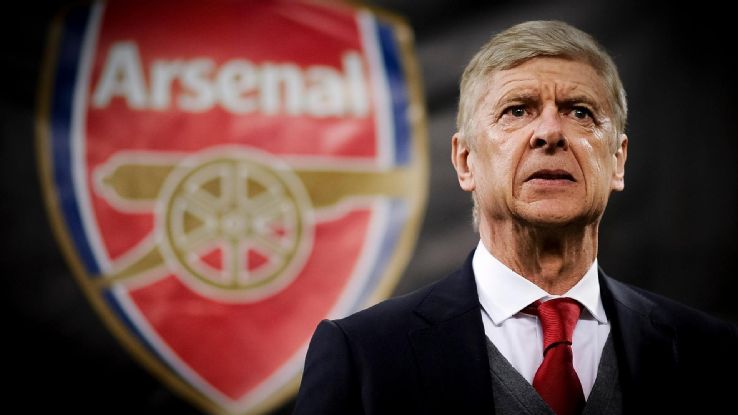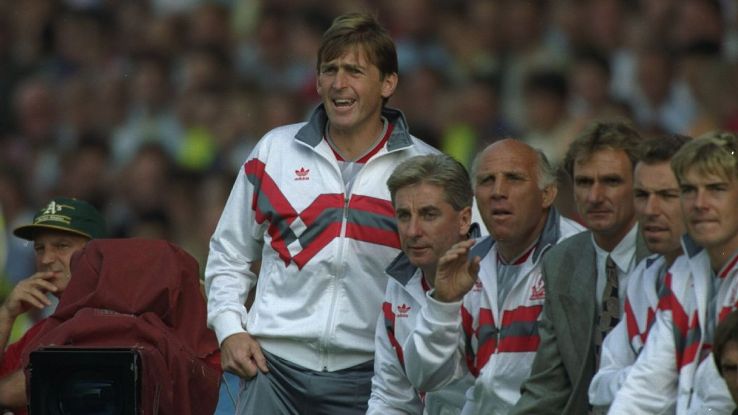




Arsenal will be replacing Arsene Wenger this summer after nearly 22 years at the helm of the club. Finding the right successor can be tricky, especially after so long. Here are other clubs that had to replace club legends.
Guy Roux: 44 years at Auxerre, 1961-2005 (followed by Jacques Santini
Whichever way you slice it, 44 years at one club is probably too long. Roux was 22 when he applied for the job at Auxerre, then a part-time club in France’s regional leagues, but he took them to four Coupe de France wins and the 1995-96 Ligue 1 title. Jacques Santini, former France and Tottenham coach, took the reins after he retired, but Roux hung around exerting his influence and by May, he exerted it in Santini’s direction. Disputes between the two men had continued throughout the season, and Santini was sacked after one complaint too many.
Bill Struth: 34 years at Rangers, 1920-54 (followed by Scott Symon)
Even though he managed one of the two clubs to have won 102 of the 121 Scottish top division titles, the 18 championships Bill Struth won in his 34 years at Rangers is pretty extraordinary. Struth defined Rangers in his generation in charge, but his successor did pretty well too: Scott Symon won six titles in 13 years (including two trebles) and was the first manager to take a British team to a European final, losing the 1961 Cup Winners’ Cup. Symon was sacked in 1967 despite being top of the league at the time.
Sir Alex Ferguson: 27 years at Manchester United, 1986-2013 (followed by David Moyes
You have to feel sorry for David Moyes. When Sir Alex Ferguson showed up at his house in May 2013 to tell him — not ask whether he was interested — that he was Manchester United’s new manager, what was he supposed to say? Moyes was not only given the task of succeeding the greatest manager in English football history, but he had to cope with a deficient squad that Ferguson and Robin van Persie had dragged to the league title. Still, finishing seventh with the defending champions … wasn’t great.

Matt Busby: 23 years at Manchester United, 1945-69 (followed by Wilf McGuinness)
Succeeding a legend can be very detrimental to your health. After building a whole club twice — once before the Munich air disaster, once after it — Matt Busby had earned a rest. Wilf McGuinness was only 31 and the club’s reserve team manager when picked as Busby’s successor and, well … things didn’t go well. United finished eighth in his first season and he was sacked the following November, with Busby returning for a short spell as caretaker. Such was the stress and trauma of his dismissal, McGuinness lost his hair.
Brian Clough: 18 years at Nottingham Forest, 1975-93 (followed by Frank Clark)
After the last sad year of Brian Clough’s career saw Nottingham Forest relegated from the Premier League, his successor was faced with quite a task. Not only did he have to replace a legend, but he had to get Forest promoted at the first attempt after two of their best players, Roy Keane and Nigel Clough, were sold. But he managed it and then some, building a fine side around Stan Collymore, going up at the first attempt and then finishing third in their first season back in the top flight, thereby taking Forest into Europe.
Miguel Munoz: 15 years at Real Madrid, 1959-74 (followed by Miljan Miljanic)
It’s entirely unthinkable for any manager to last 15 years at Real Madrid these days, though winning two European Cups and nine league titles probably helped Miguel Munoz. When Munoz left in 1974, Luis Molowny took over as the first of four caretaker spells, but in the summer, Miljan Miljanic (Yugoslavia and former Red Star Belgrade manager) arrived. Miljanic won the league in his first two seasons, but Real’s football wasn’t to the crowd’s satisfaction, and he took the extraordinary step of not travelling to a European Cup tie against Red Star because his “heart” was with his former team. He was sacked after a trophyless 1976-77 campaign and a poor start to the following season.
Don Revie: 13 years at Leeds United, 1961-74 (followed by Brian Clough)
It wasn’t quite so much that Don Revie was Leeds United’s greatest manager, more that he was Leeds United. He was a second father to most of the players, offering massages and paternal guidance, winning two league titles and two UEFA Cups (then called the Inter-Cities Fairs Cup) while even deciding the colour of the kit. Appointing his exact opposite and a man who despised Leeds was, to say the least, an interesting choice. Brian Clough immediately told the whole team they were cheats, won only one of his first six games and was sacked after 44 days.
Jock Stein: 13 years at Celtic, 1965-78 (followed by Billy McNeil)
Jock Stein was just the fourth manager in Celtic’s history when he took over in 1965: Willy Maley was there for an extraordinary 43 years but it’s difficult to assess his successor, Jimmy McStay, as he was in charge while the Scottish league was suspended during World War II. Stein won 10 league titles and, most significantly, the European Cup. When he stepped down in 1978, he nominated Billy McNeil to take his place. Whatever McNeil did he could probably never eclipse either Stein nor his own standing as a player: He appeared nearly 800 times for the club and captained the Lisbon Lions in 1967. Still, he won three titles in five years during his first spell, returning in 1987 to win one more.

Kenny Dalglish: six years at Liverpool, 1985-91 (followed by Graeme Souness)
It’s impossible to overstate how much Kenny Dalglish means to Liverpool. After eight years of playing brilliance, Dalglish took over as manager and continued on, winning three league titles and two FA Cups. Not only that, but he was the spirit of the club in the aftermath of Hillsborough, the stress of which ultimately forced him to step down. Graeme Souness arrived to an ageing squad but tried to rip things up and start again. Despite winning the 1992 FA Cup, his tenure was ultimately a failure, and he resigned after being knocked out of the Cup by Bristol City.
Ottmar Hitzfeld: six years at Bayern Munich, 1998-2004 (followed by Felix Magath)
In comparison to some on this list, six years is a relatively brief tenure, but Ottmar Hitzfeld is the longest-serving manager since Bayern Munich reached the Bundesliga in 1956. After Hitzfeld left with four titles and a Champions League to his name, Felix Magath was the choice as his replacement, and the first two years went very well indeed. He won back-to-back doubles, the first time that had happened in German history; but things went south in 2006-07, and he was sacked with Bayern in danger of not qualifying for the Champions League. Hitzfeld returned for the rest of that season.
Johan Cruyff: six years at Barcelona, 1988-96 (followed by Bobby Robson)
Quite apart from establishing the principles that the club is defined by, winning four league titles and their first European Cup, Johan Cruyff’s biggest achievement might have been staying for six years at Barcelona. Nobody has ever managed longer, so for his successor to do manage any sort of longevity was a tall order. After a short caretaker spell by trusty old Carles Rexach, Bobby Robson was that successor, and while his tenure saw success in the Copa del Rey and Cup Winners’ Cup, as well as arguably Ronaldo’s greatest season, he was jettisoned in favour of Louis van Gaal after just one season.
Nick Miller is a writer for ESPN FC, covering Premier League and European football. Follow him on Twitter @NickMiller79.

Be the first to comment